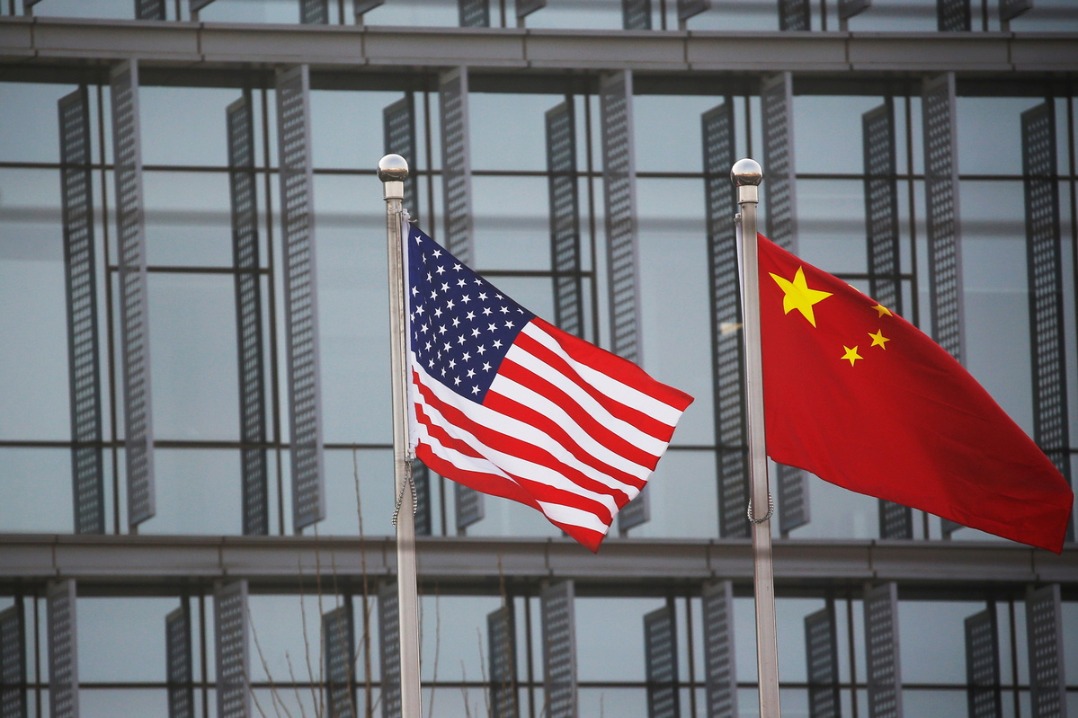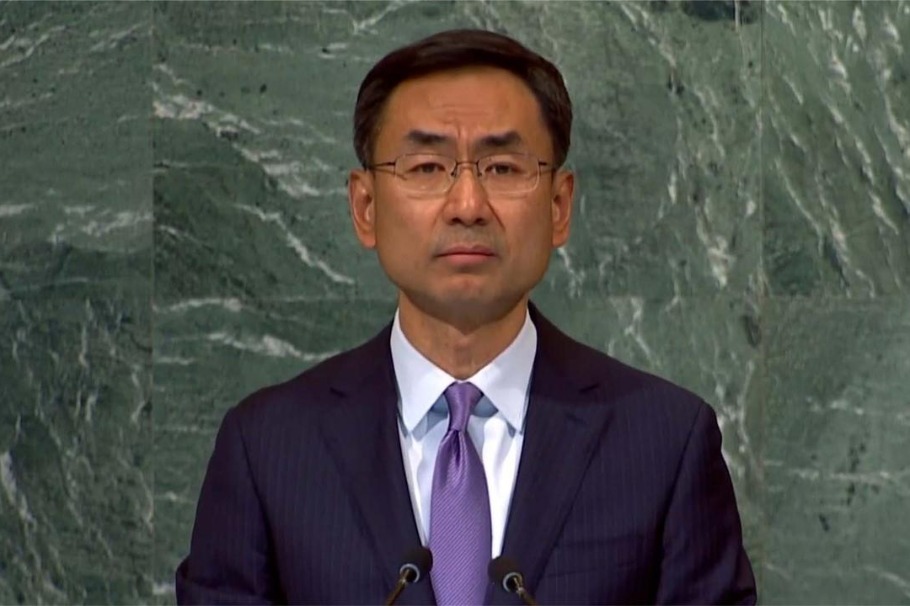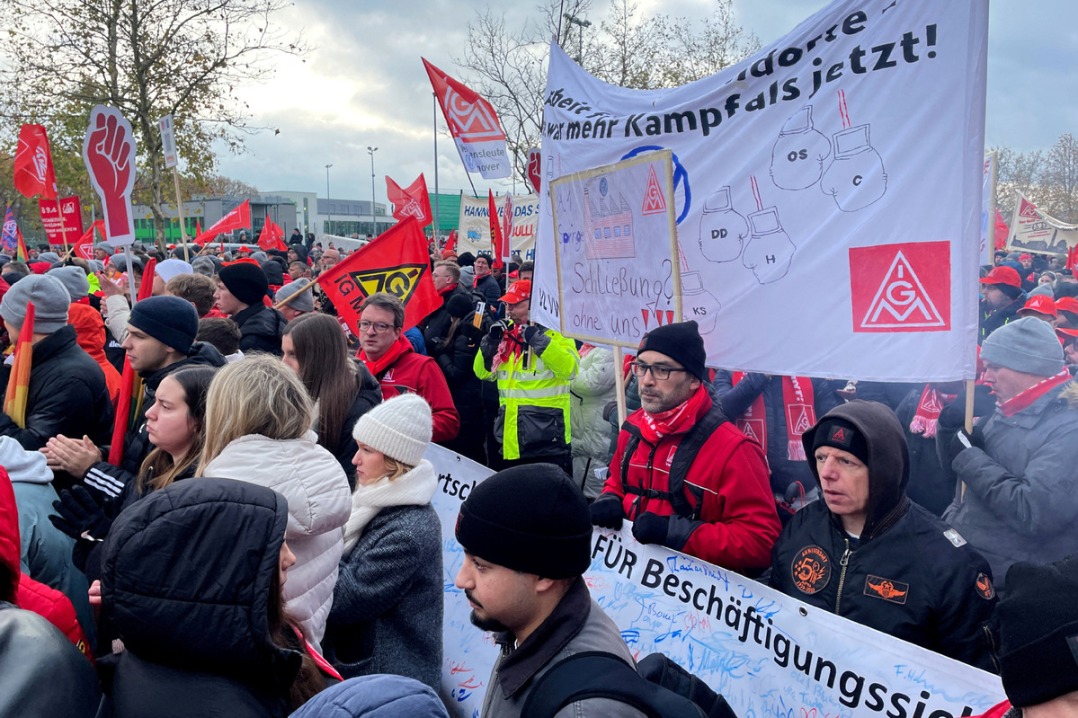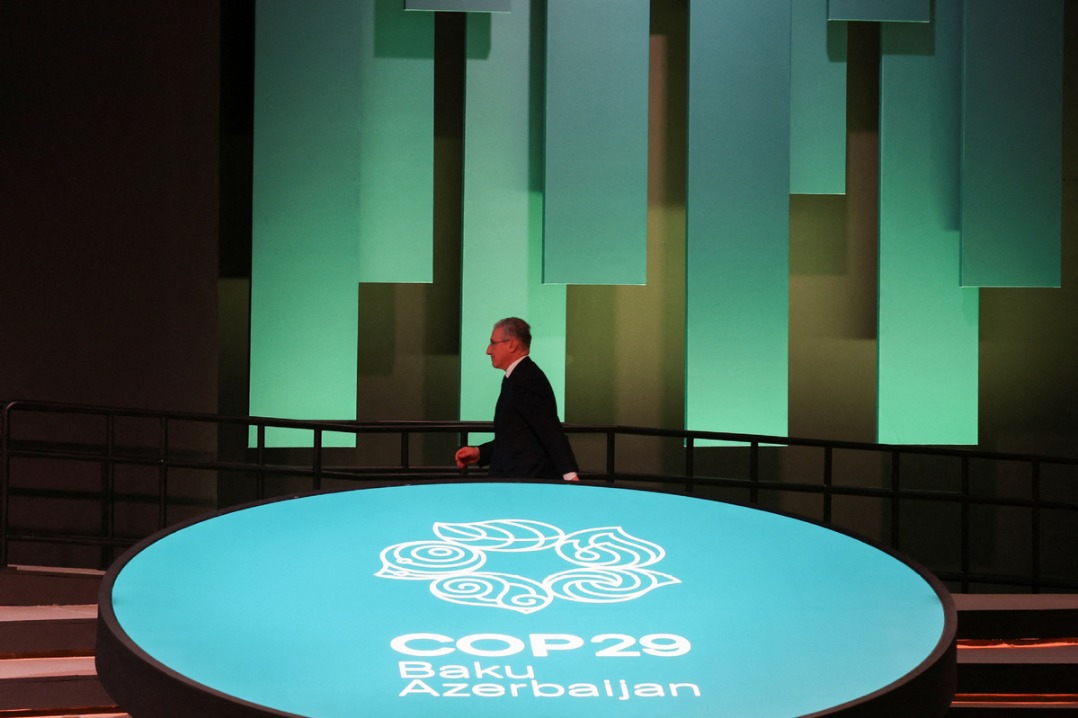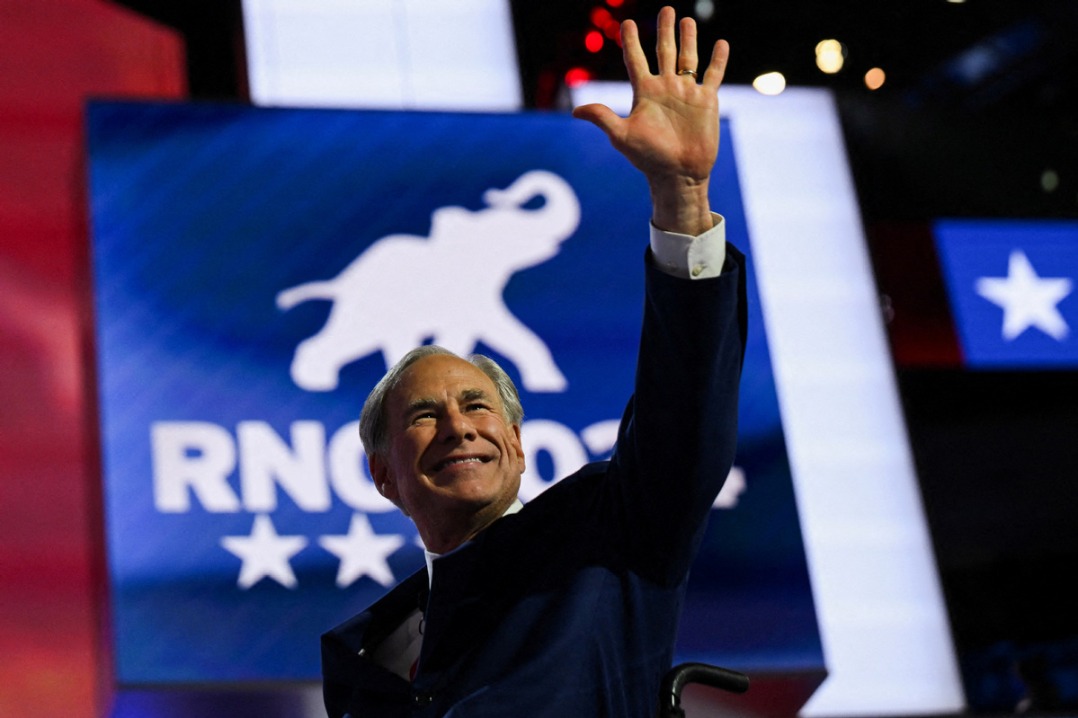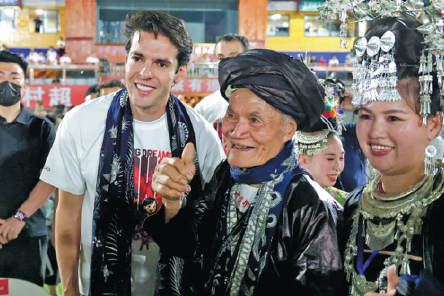Global South's joint climate efforts urged
Experts call for cooperation, saying green finance benefits all in long term


Developing countries need to form a Global South alliance that will strengthen climate commitments and pressure industrialized nations to fulfill their "historical responsibility" to finance mitigation and adaptation efforts, according to participants in this year's climate negotiations.
The agreement reached at the 29th session of the Conference of the Parties to the United Nations Framework Convention on Climate Change, or COP29 — which concluded in Baku, Azerbaijan, on Sunday — has disappointed the developing countries that claimed the $300 billion per year climate finance pledged by the developed countries is woefully inadequate.
The developing nations had proposed $1.3 trillion in annual assistance from the developed countries.
Under the Baku deal, the developed countries agreed to provide $300 billion a year by 2035 to help the developing nations cope with climate change.
The agreement includes a broader goal of raising $1.3 trillion per year in climate finance for developing countries by 2035, but that targeted funding includes both public and private sources. This means the bulk of the funding would come from private finance, rather than government-to-government assistance.
The latest target, which falls under the New Collective Quantified Goal, or NCQG, for climate financing, was approved on Sunday in Baku after two weeks of negotiations among representatives of nearly 200 countries.
Mohamed Nasheed, secretary-general of the Climate Vulnerable Forum, which represents 70 climate-vulnerable countries, said the active collaboration of countries like China, Brazil and South Africa with climate-vulnerable countries can only yield more meaningful outcomes in the global advocacy for international finance architecture reform.
Renato Redentor Constantino, international policy advisor for CVF, said emerging economies will always benefit from multilateral approaches like COP29, as this is the Global South's "real weapon" to counter the developed economies' wealth, influence and tactics.
Financing gap
Fabby Tumiwa, executive director of the Institute for Essential Services Reform think tank in Jakarta, said what the world needs is climate cooperation that is led by the Global South countries. He said China, for one, can pioneer the "greening" of Belt and Road countries, by helping them accelerate energy transition.
Tumiwa, a longtime climate campaigner and participant in climate negotiations, said the developing countries need to maximize whatever funding they receive by investing in renewable energy generation, energy efficiency and climate adaptation. He said individual nations need to set aside a budget for climate finance and consider cutting subsidies for fossil fuels.
Masayoshi Iyoda, a Japanese campaigner at 350.org, a global environmental group, said that industrialized nations need to understand that providing climate finance will also benefit the Global North in the long run.
"As one of the citizens in Japan, I see so many climate disasters happening every year," Iyoda said. He cited the heavy rains that flooded central Japan's Noto region in September, noting that even developed countries cannot escape the impact of climate change.
He said that by providing financing to the Global South, the developed countries can reduce the impact of climate change that affects everyone.
The developed countries had pledged at the 15th session of the Conference of the Parties, or COP15, in Copenhagen, Denmark, in 2009 to mobilize $100 billion annually in climate finance by 2020 to support the developing countries in reducing emissions and adapting to climate change. This commitment was reaffirmed in 2015, during COP21 in Paris, France, where signatories agreed to cut emissions so that global average temperature would stay well below 2 C above preindustrial levels.
Climate activists and campaigners at COP29 in Baku said that developed countries are now reluctant to take on very heavy commitments, citing budgetary constraints, a weaker global economy and the Russia-Ukraine conflict.
The Independent High-Level Expert Group on Climate Finance has said the annual $300 billion per year pledge by 2035 "falls short significantly" by at least $390 billion a year by 2035 needed to deliver the goals of the Paris climate pact.
















